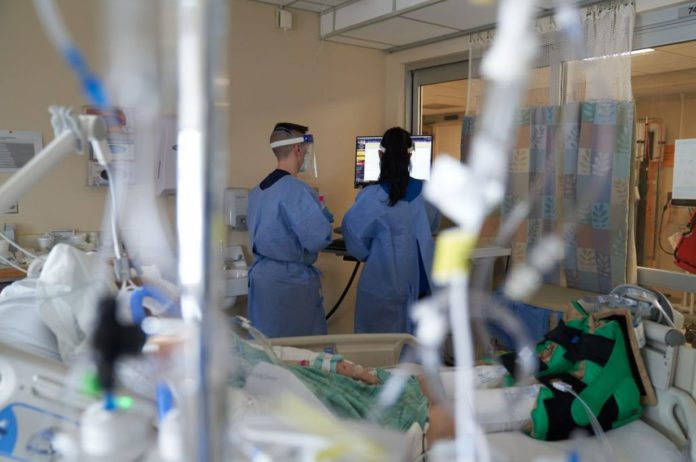A new study published in a peer-reviewed journal indicates that viral and human proteins interact to drive protein migration from the nucleus to the cytoplasm.
New research says that the new coronavirus tricks cells into making copies of itself. The discovery, according to researchers, may help with COVID-19 treatment development.
The research was carried out by scientists from the State University of Campinas (UNICAMP) and the University of So Paulo (USP) in Brazil, and the results were published on Wednesday in the peer-reviewed journal Frontiers in Cellular and Infection Microbiology.
Looking into PCNA, a protein that helps fix DNA
Researchers used a drug to stop the molecules from interacting with each other. This cut viral replication by 15% to 20%.
The scientists next utilized a variety of in vitro approaches to look into how the viral protein M causes PCNA, a protein involved in DNA repair, to migrate from the cell nucleus, where it normally resides, to the cytoplasm, a cellular region containing organelles essential for crucial cellular processes.
What does the migration demonstrate?
The researchers claim that this movement demonstrates how human and viral proteins interact to drive protein migration from the nucleus to the cytoplasm.
When a specific compound for PCNA and another compound that stops the movement of different proteins, including PCNA, were added to cells, viral replication dropped by 15% to 20% compared to cells that were not treated.
The researchers examined lung tissue samples taken during the autopsies of deceased COVID-19 patients to support their findings.
Both PCNA expression and the protein gamaH2AX, a DNA damage marker, were found to be overexpressed in these samples.
“The human protein known as PCNA [proliferating cell nuclear antigen] interacts with the SARS-CoV-2 protein M [matrix], one of the molecules that make up the virus’s membrane and give it shape,” said Professor at UNICAMP and the study’s principal investigator, Fernando Moreira Simabuco, in the conclusion, highlighting “the discovery itself shows one of the ways the pathogen manipulates cell function for its life cycle to proceed.”
Image Credit: Getty
You were reading: COVID Study Shows How Vulnerable Our Body Is To Coronavirus
